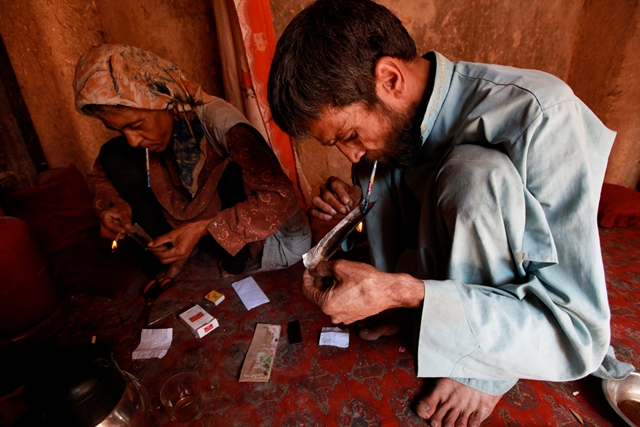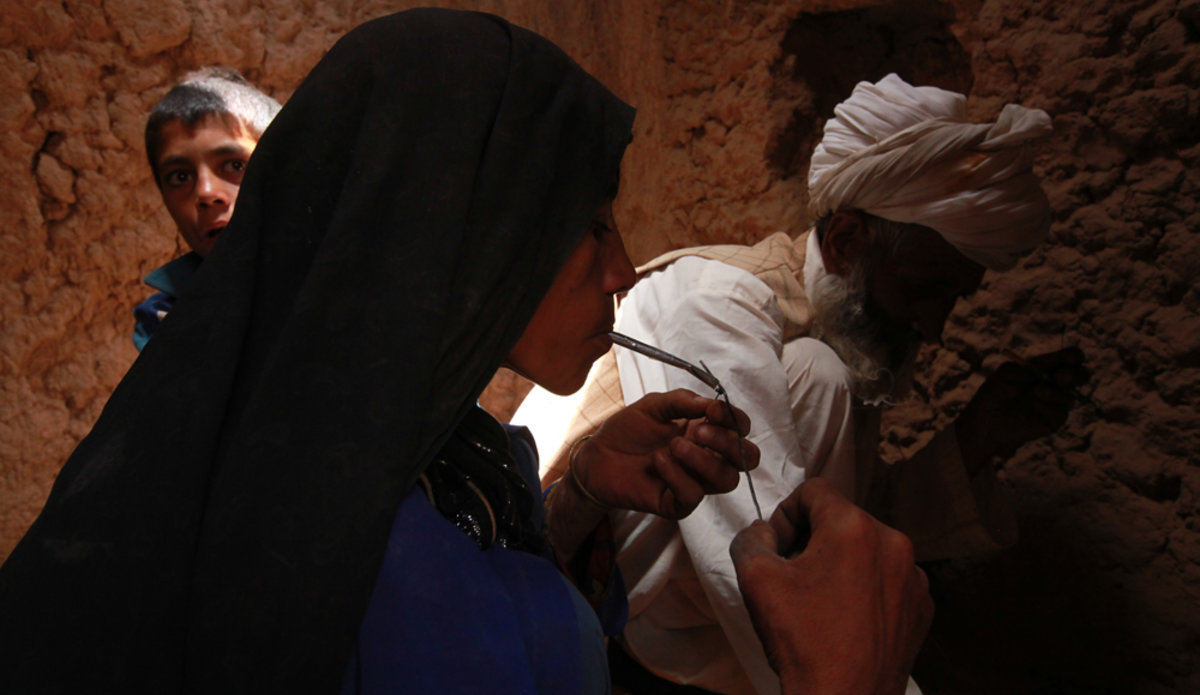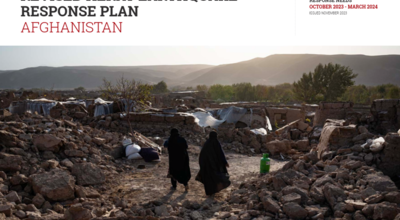UN study finds ‘sharp increase’ in opiate consumption in Afghanistan
KABUL - Poppy cultivation and opiate consumption have increased sharply in Afghanistan during recent years impacting harshly on the country, according to a new United Nations study.
“The negative physical and emotional consequences of drug use are expected to have a significant and detrimental effect on the country’s future development,” said the study, ‘Impacts of Drug Use on Users and Their Families in Afghanistan,’ carried out by the UN Office on Drugs and Crime (UNODC) and released on Tuesday.
According to the study, the consumption of heroin and other opiates in Afghanistan doubled between 2005 and 2009. As a result, by 2009, the total number of heroin users was estimated at around 120,000 - an increase of 140 per cent since 2005. In total, almost one million Afghans, aged between 15 and 64, are thought to be “regular and/or problem drug users.”
“Roughly eight per cent of 15-64 year olds are drug users, which equates to twice the global average. Currently, Afghanistan has one of the highest opiate prevalence rates in the world at 2.65 per cent,” it added. “With adolescents representing 24 per cent of the total population of the country in 2009, 40 drug use in Afghanistan is a problem that needs immediate attention if young people are to be properly protected.”
Earlier this year, the head of the UN drug and crime agency, Yury Fedotov, called on Afghanistan to address the growing problem of domestic drug consumption, which he called a “national tragedy.”
“We must provide more support to these people, many of them women and children, through continued work in the area of drug treatment and prevention," said Mr. Fedotov, in a meeting with Afghanistan’s Counter-Narcotics Minister, Din Mohammad Mobarez Rashidi, in January.
According to the UNODC’s 2013 World Drug Report, released in June last year, Afghanistan retained its position as the lead producer and cultivator of opium globally, accounting for 74 per cent of the world’s illicit opium production in 2012.

In February, Afghanistan’s Ministry of Interior officials told a donor conference in Kabul that the government has planned to reduce poppy cultivation and opium production by 50 per cent in the next five years and gradually make the country poppy-free in the next decade.
In his comments at the conference, the UN Secretary-General’s Special Representative for Afghanistan, Ján Kubiš, said Afghanistan needs to have an integrated approach across government sectors to address the problem, adding that the country’s counter-narcotics agenda should be mainstreamed in its overall post-2014 development plan.
The UNODC’s latest study, based on in-depth interviews with drug users, their family members and government officials, found that the problem of increasing drug consumption has led to domestic violence, unemployment, severe impact on children, impact on communities, among others.
“The link between drug use, unemployment and poverty is also clear; family members said that 60 per cent of drug-using relatives who had been employed prior to using drugs had subsequently lost their jobs,” it noted. “Over one third of the children interviewed said that they had been forced to leave school as a result of drug use by a family member.”
In its recommendations, the UN agency has highlighted the need of “an urgent need” to raise awareness of the dangers of drug use in Afghanistan.
“With peer pressure playing such a major role in introducing people to drug use, it is vital to focus on educating young people,” it said.
Related articles:
- Afghanistan plans to become poppy-free in a decade, seeks continued donor support
- Growing drug consumption in Afghanistan is a ‘national tragedy’ – UN drug and crime agency chief
- Illicit drugs pose ‘critical challenge’ for Afghanistan, says UN-backed report
 UN
UN








